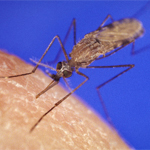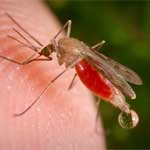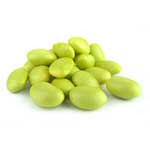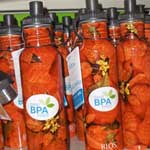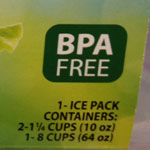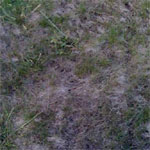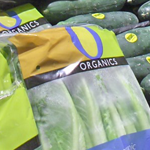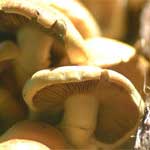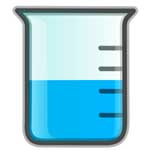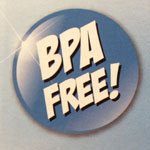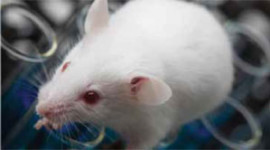"Just When You Think Science Can’t Get Any Junkier, This Comes Along," by American Council on Science and Health. We at ACSH are sure that you have heard us comment repeatedly that nothing surprises us anymore, because we’ve already heard it all. Yet, we must once again eat crow, because we STILL can’t get this right. Just when we think (or are maybe even sure) we’ve seen it all, it turns out we haven’t. Not even close this time. Today’s “How in god’s name can you publish this and keep a … [Read more...]
Anti-Public Health: Green Agendas
"Essay Attacks “Environmentalists” for Anti-Public-Health Agendas," By American Council on Science and Health. Richard Tren has long been well-known as a fervent proponent of the more widespread use of public-health insecticides, especially DDT, to prevent the scourge of malaria in Africa. He co-founded “Africa Fighting Malaria,” and co-authored several tomes and articles on this subject. His current op-ed in Forbes.com, “Anti-Science Environmentalists Ban ‘Neonic’ Insecticides, Imperiling … [Read more...]
Anti-Science Attacks on Public Health and Pesticides
"Anti-Science Environmentalists Ban 'Neonic' Insecticides, Imperiling Global Health," By Richard Tren. Some of history’s greatest advances in public health – especially in regions plagued by insect borne diseases – have come from the judicious use of pesticides to kill or repel the insect vector before it can infect human populations. Because the market for public health pesticides is relatively small, however, most of these vital chemistries were developed for larger agricultural uses. … [Read more...]
“Food Babe” Wrong About Chemicals
"The Food Babe Hath Spoken, And Subway Bread Will Still Suck," By Josh Bloom. I would like to nominate Arvind Mahankali to be the next head of the USDA. Why? He is obviously very smart, has an outstanding work ethic, and a superb vocabulary. He may have even reached puberty. And if he hasn’t, give it a year or so. Arvind is 13. But if you are concerned that he may not yet have what it takes to run an agency with a $24 billion budget and the responsibility of protecting us from unsafe foods, … [Read more...]
The New Yorker’s Puff Piece on Tyrone Hayes
"Did The New Yorker Botch Puff Piece On Frog Scientist Tyrone Hayes, Turning Rogue into Beleaguered Hero?" by Jon Entine. Who Is Tyrone Hayes and what’s the real story behind the University of California researcher’s sensational claim that he and his family are targeted victims of Big Ag? According to the amphibian scientist and as echoed in a recent 8,000 word mega-feature in the New Yorker by Rachel Aviv, Hayes is an addled but unfairly attacked whistler-blower, victim of a multi-year long … [Read more...]
FDA Research: BPA is Okay
"BPA Is A-OK, Says FDA," by Henry I. Miller. Many non-scientists are increasingly confused and dismayed by the constantly changing advice that comes from medical, nutritional and other researchers. Some of that confusion is due to the quality of the evidence, which is dependent on a number of factors, while some is due to the very nature of science: We form hypotheses and then perform experiments to test them. As the data accumulate and various hypotheses are rejected, we become more confident … [Read more...]
Book Review: From Cupcakes to Chemicals
"Julie Gunlock' s From Cupcakes to Chemicals," book reviewed Angela Logomasini. “I was going to be an earth mommy — with my baby secured in my organic cotton baby sling, wandering around the farmers market, making friends with the butcher, the baker and the candlestick maker,” says Julie Gunlock in her new book, “From Cupcakes to Chemicals: How the Culture of Alarmism Makes us Afraid of Everything and How to Fight Back.” However, that’s not what happened. Mrs. Gunlock did her homework and … [Read more...]
What’s More “Dangerous”: Soybeans or Plastics?
"Green Hype About Plastics Suggests We Ban Soybeans," Angela Logomasini. Environmental activists are relentless. No matter how bad their science or how weak their claims, they make much ado about nothing using creative spin. The latest attack on bisphenol (BPA) and other chemicals found in plastics offers the perfect example. This attack appeared in Mother Jones magazine as an “exposé” about dangerous chemicals in plastics, titled: “The Scary New Evidence on BPA-Free Plastics.” Supposedly, this … [Read more...]
JAMA Junk Science
"JAMA’s Dangerous Hype: BPA and Cash Register Receipt Research Letter," By Angela Logomasini. This month’s issue of the Journal of the American Medical Association (JAMA) contains a “research letter” on a “study” conducted by researchers at Harvard University that says: "[W]e observed an increase in urinary BPA concentrations after continuously handling receipts for 2 hours without gloves, but no significant increase when using gloves." And given these “findings” the headlines declare that … [Read more...]
Is BPA Safe: FDA Says “Yes”
"The FDA On BPA Safety," By Steve Hentges. In June 2013, the U.S. Food and Drug Administration (FDA) answered the question “Is BPA safe?” with a simple and unambiguous answer – “Yes.” In contrast, countless words have been written over many years suggesting exactly the opposite. To get to that straightforward answer, FDA initiated an in-depth research and testing program on bisphenol A (BPA) about five years ago. Although there is more to come, the 15 studies published so far, most recently … [Read more...]
BPA Isn’t Really Risky
"Maybe BPA Isn't So Bad After All," by Jon Hamilton. The plastic additive has been by environmental advocacy groups. But the chemical had no effect on rats fed thousands of times the amount a typical person ingests, government scientists are in the journal Toxicological Sciences. The results "both support and extend the conclusion from the U.S. Food and Drug Administration that BPA is safe as currently used," says , a research chemist with the FDA's. Scientists agree that in large doses, BPA … [Read more...]
USDA Data Shows Pesticide Residue Insignificant
"Our Farmers Get An A+ For Low Pesticide Residues," By Steve Savage. Last week, the USDA released its annual Pesticide Data Program (PDP) report about pesticide residues on food. This release comes from extensive sampling of crops entering the market during 2012. Here is the official summary statement from the USDA: "The Pesticide Data Program provides reliable data through rigorous sampling that helps assure consumers that the produce they feed their families is safe." And the official … [Read more...]
Meaningless Findings on BPA & Cash Register Receipts
"If You Are Scared Of BPA, JAMA Will Make You Happy," By Hank Campbell. Human exposure to bisphenol A (BPA) has recently been linked to negative health claims, like a decline in reproductive function in adults and stunted neurodevelopment in children, and so people consumed with the 'natural' fallacy have been up in arms about it. It hasn't quite become 'BPA causes autism' hysteria, like they did with vaccines, but it is getting close. Naturally, companies have listened to the nocebo worries of … [Read more...]
School Kids Suffer from Anti-Pesticide Policies
"Consequences of Misguided No-Pesticides-in-Schools Law," By Angela Logomasini. Connecticut lawmakers are considering granting schools an exemption to a dumb state law that bans the use of synthetic pesticides on school properties. WNPRNEWS reports: "For years, towns like Cheshire and Branford have been pesticide-free, treating their municipal fields with only organic products. But some school officials argue if groundskeepers can't use certain EPA-approved synthetic fungicides, herbicides, … [Read more...]
Chemophobia in the Lancet
"Grandjean and Landrigan Strike Again!" by Julie Gunlock. A recent study released by Dr. Philip Landrigan of Mount Sinai School of Medicine and Dr. Philippe Grandjean of the Harvard School of Public Health and published in the March issue of The Lancet claim the presence of certain chemicals in everyday products is doing great harm to the nervous systems of fetuses, infants, toddlers and children. Landrigan and Grandjean explain that chemical exposure is the reason there has been an increase in … [Read more...]
Food Psudoscience
"Whole Foods Sells Psudoscience," By Julie Gunlock. Like a lot of people on a budget, I have a love-hate relationship with Whole Foods. There’s a good reason people call it "whole paycheck" and, while I love the fancy food store, I’m not really interested in spending $3.29 on a can of beans (uh huh...I saw it!). I think I shop at the high-end store the way many others shop there: I do the bulk of my shopping at less expensive grocery stores, leaving a few specialty items for Whole Foods. Read … [Read more...]
Yellow Journalism, PCBs, & Environmental Health Perspectives
"Another Chemical Scare: Yellow Dye this Time. Yawn," by American Council on Science and Health. Public health concern about polychlorinated biphenyls (PCBs) had, we believed, been laid to rest in 1979 when 1976’s Toxic Substance Control Act (TSCA) was used to ban commercial use in manufacturing. Since PCBs do not occur naturally, and remain in the environment for many years, most environmentally detectable sources of PCB have been attributed to “legacy” sources. However, an Environmental … [Read more...]
Myth: Chemicals Affect Sperm Counts
"Stupid story of the day— The War On Men: 10 Ways Masculinity is Under Attack," by American Council on Science and Health. Here we go again. Mixing science with politics. We all know how well that works. Yet, Paul Joseph Watson, writing on Infowars.com manages to do just this—with a side order of chemical scares tossed in, and the result is predicable—a big mess. Watson “identifies” ten ways that men are being emasculated. The first two have to do with the “seismic shift” in the balance between … [Read more...]
Food Packaging Risks are Low
"For the record: 'Chemicals in Food Packaging May Be Health Risk'" By Sense about Science. Articles appeared in the Daily Mirror, the Guardian, the Daily Express and Daily Telegraph today with headlines such as ‘Cancer danger in food packs’ and ‘Chemicals in food packaging may be health risk' based on a comment article published in the Journal of Epidemiology and Community Health. The articles say that hundreds of dangerous chemicals such as formaldehyde and endocrine disruptors are leaching … [Read more...]
Formaldehyde Hype and WVA Chemical Spill
"West Virginia Chemical Spill and Formaldehyde Hype," by Angela Logomasini. In this final post on my series related to the January 9 chemical spill in West Virgina, I address wrongheaded claims that the spill also exposed Charleston residents to dangerous levels of formaldehyde. A few weeks after the spill, West Virginia Environmental Quality Board Vice Chairman Scott Simonton alleged that final traces of crude MCHM are breaking down and exposing residents to dangerous levels of formaldehyde. … [Read more...]
Scientists Say Food Packaging is Safe
"Concerns Over Chemicals in Food Packaging Misplaced, Say Scientists: Journal Article's Warning That Packaging is Significant Source of Chemical Food Contamination is Roundly Rejected," By Sarah Boseley. Concerns about synthetic chemicals in packaging and plastic bottles contaminating food and drink are largely misplaced, scientists have said in response to calls for greater monitoring of the long-term effect on human health. Food packaging is increasingly the subject of suspicion from some … [Read more...]
Autism and Toxic Exposures
"On Autism, Environmental Toxicants, And Bias," by Emily Willingham. Two clinicians who “utilize detoxification methods in their clinical practices” together with a third author have published an epic review in Translational Psychiatry claiming to evaluate the evidence for the involvement of environmental contaminants in autism. While we obviously want to limit contaminant exposure, autism doesn’t emerge here as the reason for doing so. Something that does emerge, however, looks a lot like … [Read more...]
Organic Food Not Pesticide Free
'Organic' Doesn't Mean Pesticides Weren't Used," By Barbara Quinn. Brian Leahy has an interesting history. In 1980, he operated a 900-acre organic rice farm in California. In the 1990's, he managed an 800-acre organic corn, soybean, alfalfa and cattle farm in Nebraska. In 2002, he became executive director of the California Certified Organic Farmers (CCOF). Then in 2012, Leahy became the director of the California Department of Pesticide Regulations. Does that seem a bit strange? Read more. … [Read more...]
Dopey Messages and Chemical Risk
"The Dopes Make The Poison," By Josh Bloom. Wherever he is, Philippus Aureolus Theophrastus Bombastus von Hohenheim a/k/a Paracelsus must be doing the Foxtrot in his grave. Because somehow a bunch of dopes have managed to “correct” something he got absolutely right 600 years ago. You know what it is. Unfortunately, the dopes are not so dopey when it comes to spreading their message: Because a chemical is toxic or carcinogenic in high doses (usually in rodent experiments) that it poses a danger … [Read more...]
BPA in Blood Not Detectible
"Study Confirms Human BPA Levels Very Low, Non-Detectable: Contaminated Procedures May Have Accounted for Higher BPA Levels Found in Earlier Studies," by Biomonitoring Info. Researchers in Sweden report that BPA (bisphenol A) levels in blood are so low as to be undetectable and higher detected levels of the substance found in previous studies may be attributed to contamination. The findings raise the possibility that concern about the widely publicized chemical found in packaging for many food … [Read more...]

